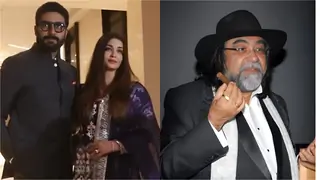Originally posted by: Sumagggg
My replies in bold-
I don’t think so, it would be injustice if you say that Akbar’s religious policies were only for the sake of his image building and expansion of power. Sure, these two intentions were present in him. But he was also genuinely interested in knowing about all religions. Because of which he created the Ibadat khana, where he actively arranged religious debates between people of different religions. Akbar may have had more than one reason for creating Ibadat khana, but trying to solve the conflict between religions was one of those major reasons. Accounts of priests who took part in debates in Ibadat khana describe Akbar to be curious and respecting their religion. Akbar was deeply interested in religious and philosophical matters. An orthodox radical Muslim at the beginning, he later came to be influenced by the sufi mysticism.
During the last 5-10 years of Akbar’s reign many of these priests viewed Akbar as a semidivine person, subsequently writing various hagiographic accounts about him. This much of difference wouldn’t have occurred if Akbar had only power and image building in mind. Existing religions, sects and denominations, as well as various religious figures who represented popular worship felt they had a claim to him. The diversity of these accounts is attributed to the fact that this reign resulted in the formation of a flexible centralised state accompanied by personal authority and cultural heterogeneity. Subjects of Akbar’s empire tremendously praise his policies in the form of hymns, legends during the later part of his reign.
Akbar gradually created a policy of religious fraternity. But it was not that he was alone in this. Akbar succeeded because he also had great and faithful officer sunder him, like Abul Fazl, who helped him in such missions. Akbar’s policy towards religions as a whole was tied to his religious-philosophical outlook, overall administrative machinery, and image and policy building for both himself and his empire.
Akbar’s religious policy is termed Sulh-i-kul (an Arabic term that means ‘peace among all’) by Abul Fazl. A religious policy that focuses and aims on peace, balance, harmony between religious communities.
Akbar created the Din-i-illahi, it was not a religion although, but a cult aiming to bridge the gaps between various religions and their practices, based on the aforementioned principles of sulh-i-kul. Yes, it is true that this initiative was a flop, but it was one of its kind.
However, one can’t expect religious pluralism/tolerance of 16th century to be the same as secularism in 21st century. Two things are different. In ancient India, state did not have any official religion, atleast we don’t find it in any sources of ancient times. The most probable cause of this is that in ancient world, the concept of integrated religions having well defined boundaries from each other had not been created. Rulers used to patronize more than one sect (this in no way means that ancient people were non-violent liberals). But, during the time of Mughal empire, the idea of well define religion is already concurrent. Akbar was the head of Mughal empire, which was an Islamic empire, atleast on pen and paper. A state having an official religion therefore, cannot treat all religions as equal. What Akbar did however was to ensure that religious tolerance, harmony and cordiality between various religious sects and their people, so that one religion does not cruelly and unjustly try to subjugate another religion and there exists peace, also that the hegemony of radical-Islamic domination is broken, balance between all religions is achieved.
Many kings(both hindu and muslim) before and after Akbar have demonstrated religious tolerance and pluralism. But none of them have been as successful as Akbar, because for those rulers, religious tolerance was only a personal outlook, but not part of empire’s overall policy. But Akbar succeeded in combining his religious pluralism with the empire’s overall policy and administration. His secret of success and speciality lies in the implementation of his policies throughout his empire with such success. No other tolerant ruler in India has been able to do this.
Please read,
Thanks,
Anushka










 Just replying to your points- (dark blue)
Just replying to your points- (dark blue)
 Artists often exaggerate features to show "character," so let's not assume it’s a perfect likeness. I checked those links you’ve shared and I still agree with you/
Artists often exaggerate features to show "character," so let's not assume it’s a perfect likeness. I checked those links you’ve shared and I still agree with you/ 





 No, no, don't worry, you're not rude at all.. in fact I should be the one saying so. :p You're being very kind and I appreciate every bit of that <3
No, no, don't worry, you're not rude at all.. in fact I should be the one saying so. :p You're being very kind and I appreciate every bit of that <3















367